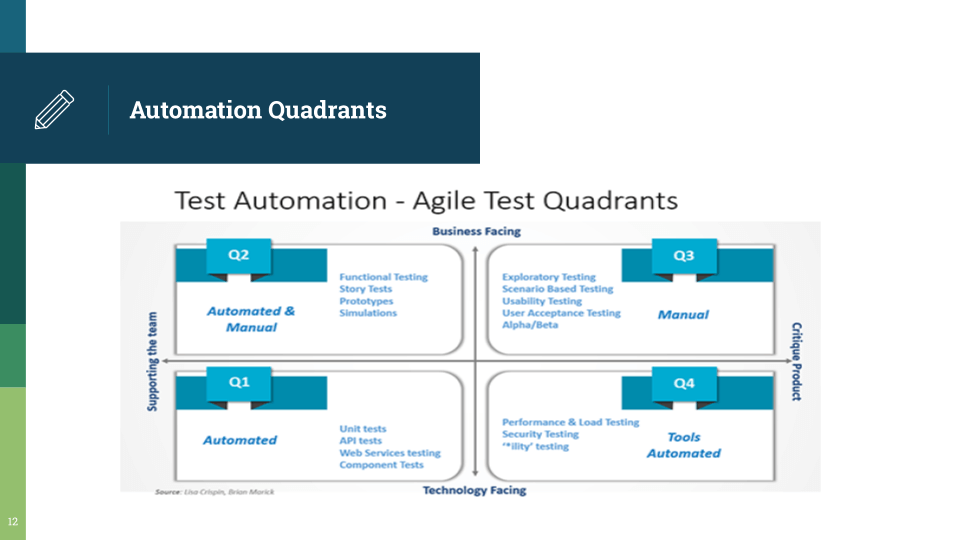What You Need to Know About Test Automation in 2022
Emerging software companies are scrambling to stay ahead of their competitors now more than ever before in the midst of technology modernization —all without sacrificing product quality, user experience, and customer satisfaction.
Not only has COVID-19 and remote work influenced the adoption of more digital, online, and mobile applications, but companies are experiencing increased consumer demand for cutting-edge technologies such as artificial intelligence and cloud-based solutions.
These evolutionary changes are transforming the automation testing market as businesses look to achieve faster release cycles and improve customer satisfaction and retention.
According to Global Market Insights, the CAGR of the automation testing market is expected to grow by over 16% from 2021 to 2027.

So how can organizations prepare to accelerate product delivery while successfully streamlining their software development processes in 2022?
By implementing a distinguished test automation framework, business teams can optimize the software development life cycle and in turn, increase ROI and operational efficiency.
Below, we share all the details you need to know if you’re considering adopting a functional test automation strategy in the new year.
What is Test Automation?
Test automation is the method of utilizing automated tools to execute numerous controlled tests on your software platform, such as running multiple test cases, tracking test data, and applying various test designs.
The purpose of automation testing is to ensure that your application is seamlessly responding and functioning as expected before it’s delivered to your user base.
It’s important to recognize that test automation is a critical piece of the puzzle in every go-to-market strategy, as companies strive to produce faster software development life cycles without the risk of manual testing errors.
Why Businesses Utilize Test Automation
With an increased demand for DevOps and Quality Assurance testing across the software landscape, it’s no secret that automation is a fundamental key player across scaling businesses.
With little to no human intervention, automation helps eliminate manual workarounds and allows engineering and development teams to focus on other higher-value tasks within the software development life cycle.
As software companies continue to drive digital transformation, many of them are embracing automated testing in order to:
- Drive faster time to market
- Improve overall software quality
- Increase test reliability, especially during regression testing
- Validate software platforms through various phases and codes
- Shorten feedback cycles
- Identify application errors in the early stages of software development
Hear from one of our KMS experts, Nilesh Patel, Sr. Director of Software Testing Services, as he shares why companies should embrace an automated testing strategy.
How to Establish a Test Automation Framework
Let’s face it—any large project without a framework or plan may not result in its highest potential.
For maximum ROI, businesses must first establish a test automation framework, or a set of rules, which lay the foundation of components needed for their software testing process.
By providing your testing team with a well-defined structure of testing objectives and all the necessary protocols needed for your project, you can jump-start a smoother process in the early stages of development.
We’ve identified some framework parameters that you may consider putting into your test automation groundwork:
- Objectives of your product
- Timeline, budget, resources
- Test automation tools needed
- Installation and maintenance best practices
- Testing scripts and programming
- In-depth details and features related to test design and test execution
- Metrics and overall test reporting
Make sure to prioritize your most essential features and have a solid understanding of team responsibilities before getting started.
Additionally, businesses should note that ongoing software maintenance and continuous testing are necessary for product success, especially if any new code or programming is being pushed out.
Considering an offshore software development partner?
E-BOOK: Key Takeaways from Continuous Testing Survey |
Automated vs. Manual Testing
When it comes time to create your test automation framework, keep in mind there are two categories of software testing—automated and manual.
Although automation helps streamline processes, not every single aspect of software testing should be automated and each use case will depend on project requirements, timeline, budget, expertise, etc.
However, both testing processes will ultimately go hand-in-hand with one another, each providing its own benefits that we’ve listed below:
Benefits of Automated Testing:
- Automates time-consuming testing activities
- Increases speed and overall test coverage
- Mitigates the risk of human error
- Saves time during regression testing and repetitive tasks
- Less investment needed in human resources
Benefits of Manual Testing:
- Creates and maintains test scripts accurately
- Enables human observation that could be missed by automation
- Drives effectiveness for exploratory testing, which requires a tester’s knowledge and expertise
- Utilizes real-time human evaluation of user experience

At the end of the day, businesses want to ensure they are getting ROI from their automation efforts.
If your organization lacks the bandwidth, knowledge, or tools to execute test automation for your products, it might be time to consider leaning on a partner like KMS. By utilizing a team of trustworthy and dedicated experts, businesses can cut onboarding and overhead costs while still maintaining the support they need.
How KMS Can Help with Test Automation Services
As a leading software development and consulting practice, KMS Technology can provide your organization with the proper test environment and test automation tools to ensure that your business delivers the highest quality software product to the market.
Some of KMS Technology testing services include:
- Test automation
- System testing
- API testing
- Mobile testing
Using the agile methodology and proven best-of-breed test automation tools, KMS evaluates your existing platform and works with you to create a custom automation strategy.
By leveraging automation earlier in the delivery cycle, our software development pioneers help pave the way for a speedier product release for your business.
Interested in learning more about our process and testing team?







